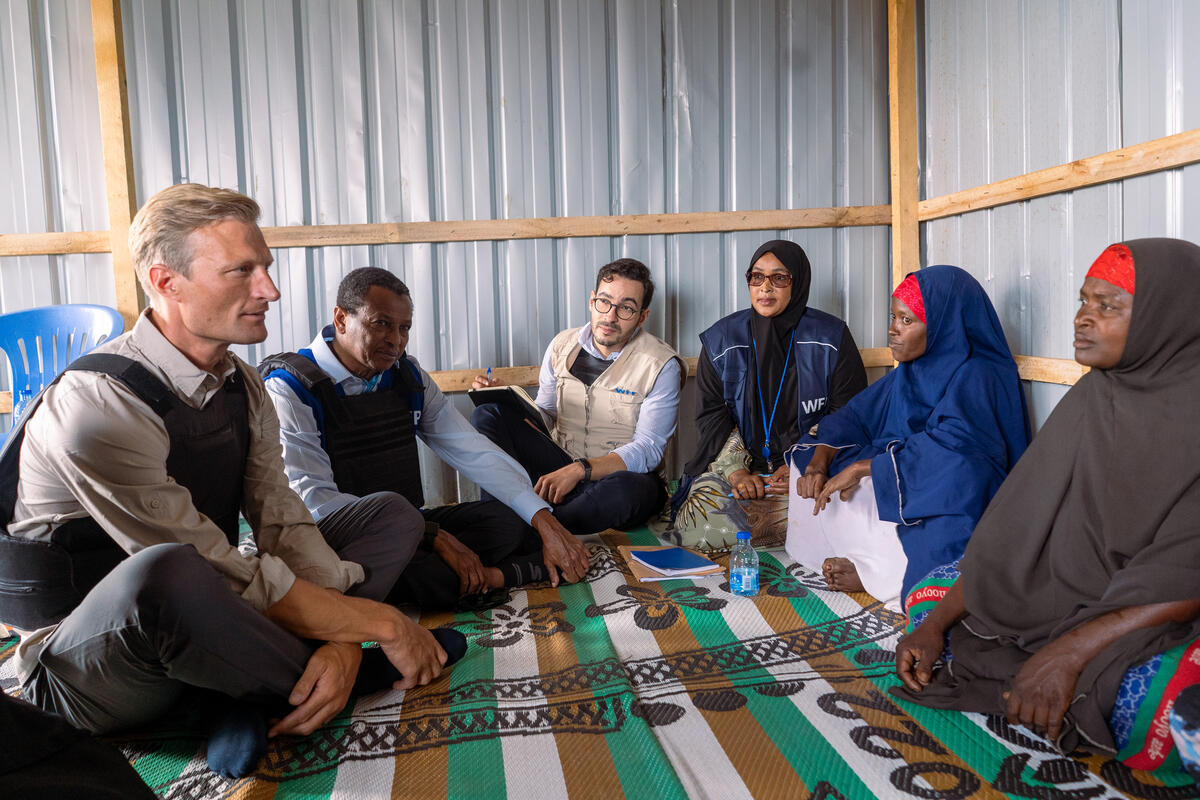The mission included a visit to Baidoa in the Southwest region of Somalia, one of the worst drought-affected areas in 2022.
"During my time in Baidoa, I met families who had to leave their homes due to conflict and extreme climate shocks. Families are stuck in a cycle of climate disasters, displacement, and a lack of nutritious food and education," said Skau. The Somali people show incredible resilience every day. It is critical now that the government, the UN, and its partners target the most vulnerable and ensure that the right assistance reaches them on time."
Somalia's longest drought (2020-2023) ended with floods in November 2023. The floods - by some estimates the worst in decades - affected two million people and drove 750,000 people from their homes.
An unprecedented humanitarian scale-up by WFP and partners helped to avert famine in Somalia. While these efforts and increased rainfall this year have improved food security since the peak of the drought (6.6 million), almost 3.4 million people still experience crisis-level hunger (IPC3).
"I spoke with staff who were at the worst-affected sites during the peak of the emergency. What we have achieved with the Government and partners is commendable, but we cannot stop. WFP is committed to delivering assistance to the most vulnerable. Reaching all those in need and the safety of our staff is of the utmost importance. Humanitarian access must be preserved at all costs," said Skau.
This year's rains were milder than last year's, reducing flood risks. However, communities still face the lingering effects of past shocks, and forecasts predict ongoing dry conditions with below-average rainfall in the upcoming season.
"Somalia is at a turning point. We need to provide nutritious food to families, address the root causes of hunger, and help communities adapt to continuous cycles of climate shocks," added Skau.
In 2023, WFP supported 315,000 people in Somalia with resilience-building activities such as climate-smart food systems and livelihoods support, preparedness, recovery and water resource management.
Through its Anticipatory Action Plan, WFP delivered early warning messages to 1.9 million people and cash transfers worth US$1 million to 80,000 people facing potential flood risks in 2024. WFP works with the Somali Disaster Management Agency and closely monitors and activates early warning systems during the rainy seasons.
"Resources are limited, but now is the time to invest in resilience and climate adaptation to prepare for and mitigate the impact of shocks. WFP is stepping up its efforts to foster more resilient communities," said Skau.
During the mission, Skau engaged with the Somali Deputy Prime Minister and key Ministries, including Agriculture, Energy & Water Resources, Environment & Climate Change, and Livestock, as well as longstanding international development partners. These discussions converged on the need to enhance food systems and social protection and to embrace new technologies for sustainable development. This would only be possible with unimpeded access to affected populations.
WFP is the largest humanitarian organisation in Somalia and operates in the most remote and hard-to-reach areas, assisting around 3 million people every month. WFP has become a lifeline for communities through support to the Government and humanitarian partners via the United Nations Humanitarian Air Service, and Food Security, Nutrition and Logistics clusters.
Note to the editor:
High-resolution photos can be found here







